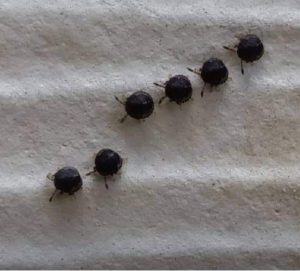
Beware of the Mysterious ‘Blueberries’ in Your Garden – They Are Not What They Seem!
As you wander through your garden, you might stumble upon some enticing little blue “berries” dangling from your plants. Before you reach out to grab what you think are fresh blueberries, take a moment to reconsider. These peculiar orbs may not be the delicious, healthy snacks you expect. In fact, they might just be hiding a surprising secret: they are actually the Homaemus Proteus, commonly known as the Jewel Bug or Shield Bug.
Meet the Homaemus Proteus: Nature’s Master of Disguise
The Homaemus Proteus is a fascinating creature that can easily deceive even the most seasoned gardener. At first glance, these striking blue bugs resemble ripe blueberries, tempting you to indulge in what appears to be a free snack. However, don’t be fooled by their appearance! These bugs are experts at camouflage, using their vibrant color to blend into their surroundings and avoid detection by predators.
Why You Should Avoid These Faux Blueberries
You might be wondering why it’s essential to steer clear of these enticing impostors. Here are a few compelling reasons:
- Unpalatable Taste: First and foremost, Homaemus Proteus is not meant to be eaten. Unlike genuine blueberries, which are sweet and flavorful, these shield bugs have a reputation for being quite bitter and unappetizing. Consuming them is not just unpleasant; it can also lead to a rather unfortunate taste experience.
- Toxic Defense Mechanism: The most alarming reason to avoid these blue impostors is their toxicity. The Homaemus Proteus uses its vibrant color as a defense mechanism. By resembling the appealing shape of a fruit, they deter potential predators. However, if consumed, they can induce negative reactions due to their toxic nature. It’s best to admire them from a distance rather than risk an unpleasant encounter.
- Ecological Contribution: Instead of eliminating these intriguing bugs from your garden, consider allowing them to thrive. The Homaemus Proteus serves as a food source for various animals, including birds. By fostering a diverse ecosystem in your garden, you contribute to a balanced environment, benefiting both the flora and fauna around you.
